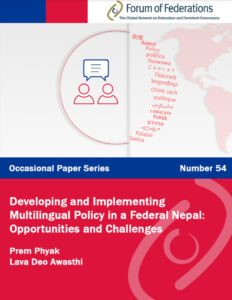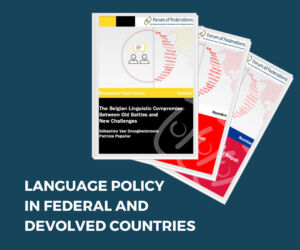
As a significant marker of both individual and collective identity, language is often a key factor in community or national affirmation and claims to self-government. Due to this importance, provisions to recognize and accommodate linguistic differences have often been a particularly central issue for federations, many of which have highly diverse populations. To address this issue and fill the current gap in comparative research on this topic, this program seeks to examine frameworks for language recognition, protection and service division, the current debates and pressures for change, and potential reforms and improvements on language policy in federal/multilevel countries.




